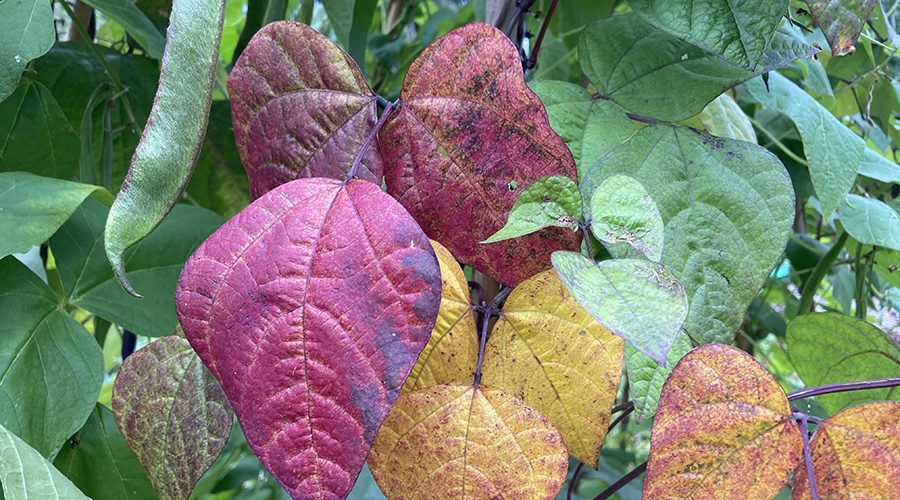Over the past few years, I have changed the way I water my vegetable plants. Whereas before, I used to water almost religiously every two or three days, right through the summer, I now water just a few times through the whole of the growing season.
Of course, this year we have had hardly any rain, and so it has really put my method to the test. I’ve remained stubborn, not watering even though I can see signs of some of the plants struggling. I wanted to see how they’d get on without my intervention!
Here’s what I’ve done:
In May, when I first planted out, I watered thoroughly twice a week for the first two weeks.
Then I stopped watering.
I mulched heavily, using Strulch, when I went away in June, just after a day of rain (good timing, not planned!)
I watered once when I came back from my two week holiday, and then again the following week.
In July and August, I have only watered newly planted plugs – the ones that I’ve been adding as spaces have come up. I’ve watered them thoroughly in the first week and then left them to their own devices.
Now here’s what happened:
I have a good crop of tomatoes, courgettes and beans. No major problems to report. Some of the bean leaves are turning a deep purple, and a few courgettes came through with blossom end rot, just as the plants started to crop, but the rest have been absolutely fine. Truthfully, I’m surprised. I thought the plants would struggle more, but they really haven’t.
My spinach and chard has looked a little pale and yellow throughout the summer – they’re not the lush leaves that I would normally expect. I think they have struggled the most actually. They’re in one of the beds that I didn’t mulch, so it was to be expected. In hindsight, I wish I had ordered an extra bag of Strulch to cover this bed as well. I think it would have made a big difference.
My onions have grown beautifully, but the fennel bolted quite quickly. I think fennel is a little more sensitive to being transplanted, so that may be the reason for the difference between the two. I am actually thinking of growing the fennel in the bed that gets quite a lot of shade next year, just to see if that makes a difference.
The kale, broccoli and other brassicas have done brilliantly. I mulched them and they look every bit as healthy as they have done in years when they got loads more water.
My sweetcorn plants are shorter than normal, but they seem to be developing well and the tassels are just beginning to turn. Hopefully the harvested cobs will be good, but I’m not sure just yet.
The potatoes grew fine for a while, and then the foliage got hit by blight. I dug them all up and found that whilst the tubers were pretty healthy, they disintegrated on cooking – from experience, this often happens when potatoes get too dry. I think that they would have been worth watering, or mulching.
The jury is out on my winter squashes – I think they are struggling without the water. I did mulch them, but a lot of the leaves are looking properly yellow, and actually I don’t have that many fruits on them either. I think that for these, I wish I’d given them another couple of deep waterings back in June/July. I think it would have made all the difference.
Here’s what I think:
My overall thinking is that I like this method of not watering – it feels ‘right’ in terms of water usage and by not molly-coddling the plants in the first few weeks, they learn to put their roots down nice and deep which stands them in good stead for the drier spells. I also like that it feels very natural and in parallel with the way the season itself pans out – it’s a good reminder that we are reliant on nature. That doesn’t mean that I am committed to not watering though – there are learnings here, particularly with regards to mulching which I will try and do more of next year. And perhaps not watering for almost six weeks has been a bit much for the plants – maybe one or two deep waterings in that time would have made a real difference to the numbers of squashes and to the potatoes.

